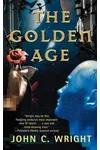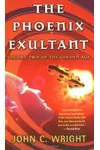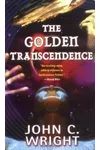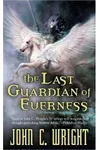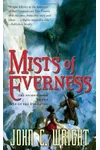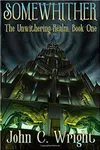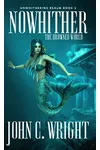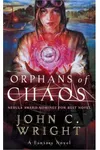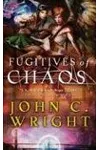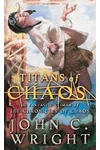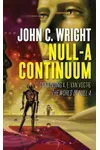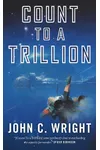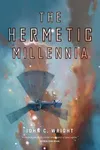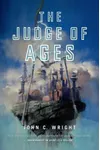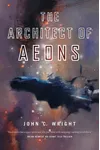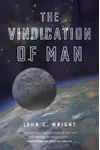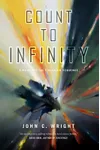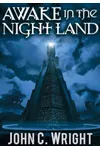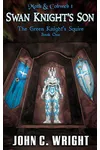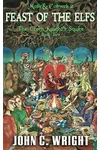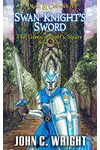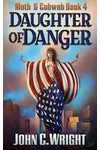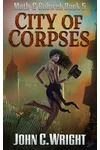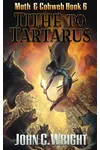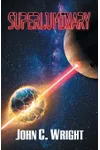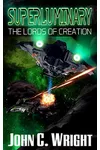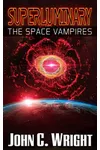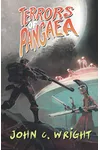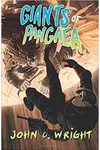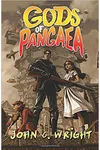Picture a California-born storyteller weaving epic space operas that blend philosophy, faith, and futuristic wonder—meet John C. Wright! A Nebula Award nominee and Dragon Award winner, Wright has captivated sci-fi fans with his intricate narratives and bold ideas. From his debut novel, The Golden Age, to his Chronicles of Chaos series, his work explores humanity’s evolution with a poetic flair that’s both thrilling and thought-provoking.
Born in Chula Vista, California, in 1961, Wright’s journey to literary stardom is as fascinating as his stories. A former attorney and journalist, he traded courtrooms and newsrooms for the boundless realms of speculative fiction, earning praise as one of the century’s most important new sci-fi talents.
The Making of John C. Wright
John Charles Justin Wright grew up in a military family, moving frequently across the United States. His intellectual curiosity led him to St. John’s College in Annapolis, Maryland, where he immersed himself in the Great Books program, graduating in 1984. He later earned a Juris Doctor from William & Mary Law School in 1987. Admitted to practice law in New York, Maryland, and Washington, D.C., Wright’s legal career was short-lived, leading him to journalism at St. Mary’s Today before he found his true calling in writing science fiction and fantasy.
A pivotal moment came at age 42 when Wright converted from atheism to Catholicism, inspired by profound religious experiences. This transformation deeply influenced his work, infusing it with themes of faith, morality, and the human spirit, making his stories resonate with readers seeking deeper meaning in speculative fiction.
John C. Wright’s Unforgettable Stories
Wright’s debut, The Golden Age (2002), set in a far-future anarchistic society called the Golden Oecumene, stunned critics with its kaleidoscopic imagery and philosophical depth. The trilogy, including The Phoenix Exultant and The Golden Transcendence, follows a hero’s quest for self-discovery, earning accolades for its ambitious world-building. Publishers Weekly hailed Wright as a potential cornerstone of 21st-century sci-fi.
The Chronicles of Chaos series, starting with Orphans of Chaos (2005), a Nebula Award finalist, blends fantasy and space opera. Set in a Welsh boarding school, it follows five god-like students battling for cosmic sovereignty, showcasing Wright’s knack for merging mythic grandeur with intricate plots. His Count to the Eschaton series, beginning with Count to a Trillion (2011), channels influences like Olaf Stapledon, exploring humanity’s fate in a distant future.
Wright’s prose is poetic, his narratives baroque, often weaving libertarian and Christian themes. Works like Somewhither (2015), which won the first Dragon Award for Best Science Fiction Novel, feature heroic protagonists and vivid villains, rejecting modern tropes for classic pulp-inspired storytelling. His short stories, published in Asimov’s Science Fiction and anthologies like The New Space Opera 2, further highlight his versatility.
Why John C. Wright Matters
John C. Wright’s impact lies in his ability to elevate space opera into a platform for philosophical and spiritual exploration. His conversion to Catholicism and outspoken views have sparked debates, yet his storytelling remains universally compelling, bridging secular and religious audiences. With 22 novels and numerous short stories, Wright has inspired a new generation of sci-fi writers to embrace wonder and complexity.
His Hugo Award nominations in 2015 and the Dragon Award win in 2016 underscore his influence, despite controversies like the Rabid Puppies slate. Wright’s commitment to art over propaganda, as he’s expressed in interviews, ensures his legacy as a writer who prioritizes story over agenda, making him a vital voice in speculative fiction.
- Birth Date: October 22, 1961
- Key Works: The Golden Age, Orphans of Chaos, Somewhither
- Awards: Nebula Award finalist (2005), Dragon Award winner (2016)
- Spouse: L. Jagi Lamplighter, fellow author
Snag The Golden Age and dive into John C. Wright’s dazzling sci-fi universe today!
